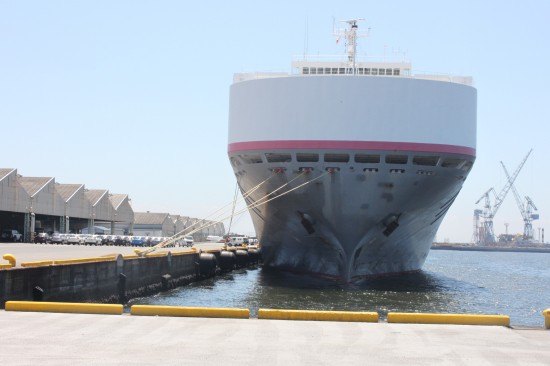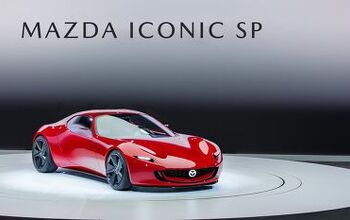The Exodus From Japan Begins In Earnest

It looks like Carlos Ghosn is tired of talking about the inaction of the Japanese government with regards to the killer yen. He told his people to start packing. The Nikkei [sub] reports today that Nissan will stop making in Japan newly developed cars for export from Japan. New cars will be produced at overseas plants.
“Under current foreign exchange rates, there can be no shipments from Japan of totally new projects,” Nissan’s COO Toshiyuki Shiga said. According to the report, anything with a new chassis that is intended for foreign markets will begin its life in those foreign markets. Says The Nikkei:
“Shiga’s comments suggest that there are few benefits to producing entirely new models for export in Japan because of the yen’s surge, but new models that use the chassis of existing vehicles can be exported as they are relatively less expensive to produce.”
Nissan makes only 25 percent of its worldwide volume in Japan. However, half of the Japanese production is currently exported. This will change.
In the interview, Shiga indicated that exports from Japan could fall to 400,000 units. At the same time, the Japanese market (which pays in yen) is supposed to absorb 600,000 units, so that the target of 1 million units can be maintained. In the fiscal year that ended in March 2011, Nissan’s Japanese production was 1.07 million units, of which 610,000 were exported and 460,000 were sold in Japan.
In early November, Toyota had announced a similar plan to maintain its commitment to make 3 million cars in Japan: Fewer cars exported means that Japanese will have to buy more cars domestically.
If the domestic sales don’t pan out as planned, both carmakers can say: “Sorry, we tried.”
Nissan’s plan sounds more decisive than Toyota’s. Usually, cars are developed and made at home first before they slowly filter abroad. Starting newly developed cars offshore inevitably will mean that R&D has to follow. Development and production must go hand in hand in close vicinity, at least in the early stages of the cycle.
Japan’s innovative power will be dismantled and shipped abroad. And that is a much bigger loss than a few cars. Japan will slowly turn into a 3rd world country. It used to be that those got the older cars, while new models hatched at home.

Bertel Schmitt comes back to journalism after taking a 35 year break in advertising and marketing. He ran and owned advertising agencies in Duesseldorf, Germany, and New York City. Volkswagen A.G. was Bertel's most important corporate account. Schmitt's advertising and marketing career touched many corners of the industry with a special focus on automotive products and services. Since 2004, he lives in Japan and China with his wife <a href="http://www.tomokoandbertel.com"> Tomoko </a>. Bertel Schmitt is a founding board member of the <a href="http://www.offshoresuperseries.com"> Offshore Super Series </a>, an American offshore powerboat racing organization. He is co-owner of the racing team Typhoon.
More by Bertel Schmitt
Latest Car Reviews
Read moreLatest Product Reviews
Read moreRecent Comments
- ToolGuy 9 miles a day for 20 years. You didn't drive it, why should I? 😉
- Brian Uchida Laguna Seca, corkscrew, (drying track off in rental car prior to Superbike test session), at speed - turn 9 big Willow Springs racing a motorcycle,- at greater speed (but riding shotgun) - The Carrousel at Sears Point in a 1981 PA9 Osella 2 litre FIA racer with Eddie Lawson at the wheel! (apologies for not being brief!)
- Mister It wasn't helped any by the horrible fuel economy for what it was... something like 22mpg city, iirc.
- Lorenzo I shop for all-season tires that have good wet and dry pavement grip and use them year-round. Nothing works on black ice, and I stopped driving in snow long ago - I'll wait until the streets and highways are plowed, when all-seasons are good enough. After all, I don't live in Canada or deep in the snow zone.
- FormerFF I’m in Atlanta. The summers go on in April and come off in October. I have a Cayman that stays on summer tires year round and gets driven on winter days when the temperature gets above 45 F and it’s dry, which is usually at least once a week.


































Comments
Join the conversation
Anecdotally, I'm told by an acquaintance who helps Japanese ex-patriots relocate to the US that there are quite a large number of people leaving Japan and picking up cheap-for-them property on California's West Coast.
I hate to say it but Japan is going through many of the same changes we have here.